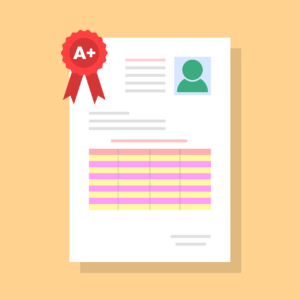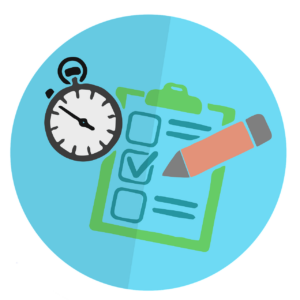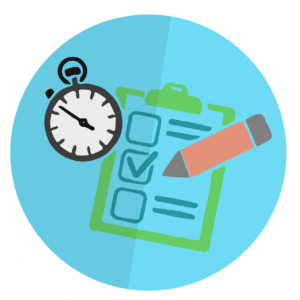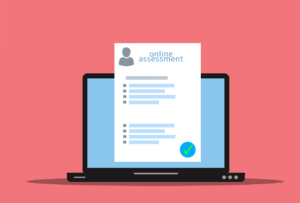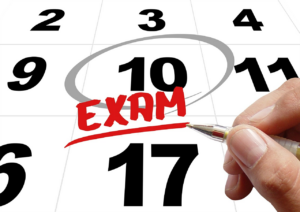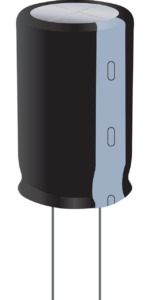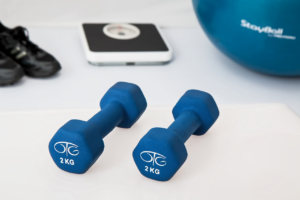Are you a nursing student who is preparing to take the NCLEX exam? This can be a stressful time, but don’t worry – with the right preparation and understanding of the exam format and question types, you can approach the exam with confidence.
In this article, we will provide insights into the types of questions you can expect on the NCLEX exam, as well as tips for understanding the question stem and developing effective study strategies.
First, it’s important to understand the purpose of the NCLEX exam. This exam is designed to test your knowledge and competency as a nurse, and it is a requirement for licensure in the United States and Canada.
The exam is computer-adaptive, which means that the difficulty level of the questions will vary based on your performance. This ensures that the exam accurately assesses your abilities and provides a fair evaluation of your nursing knowledge and skills.
With this in mind, let’s dive into the types of questions you can expect on the NCLEX exam.
Key Takeaways
- Understanding the question stem and keywords is crucial for success on the NCLEX exam.
- Content areas covered on the exam include pharmacology, anatomy and physiology, and nursing management, and mastering key concepts is essential for success.
- Mock tests can help familiarize test takers with the format and question types, and practicing with them can help develop effective timing strategies and identify weak areas.
- Test anxiety can negatively impact performance on the exam, so approaching the exam with confidence, managing time effectively, and using relaxation techniques can help manage test anxiety and increase the chances of passing on the first try.
Overview of the NCLEX Exam
Get ready to dive into the nitty-gritty of the NCLEX exam – it’s time for an overview!
The NCLEX (National Council Licensure Examination) is a standardized test that’s used to determine if a candidate is qualified to become a licensed nurse in the United States. The exam is designed to test a candidate’s knowledge, skills, and abilities in various areas of nursing. These areas include health promotion and maintenance, safety and infection control, pharmacology, and more.
To pass the NCLEX exam, it’s important to have a solid understanding of the testing strategies and exam day tips. Some of the tips include getting plenty of rest the night before the exam, eating a healthy breakfast, and arriving at the testing center early.
Additionally, it’s important to read each question carefully, eliminate obviously incorrect answers, and use the process of elimination to narrow down the choices. By taking the time to prepare and familiarize yourself with the exam format, you can increase your chances of passing the NCLEX on your first try.
Types of Questions on the NCLEX Exam
You’ll quickly notice the diversity of question styles on the NCLEX exam. The exam is designed to test your critical thinking and prioritization skills through various question formats. Here are three types of questions you can expect to see on the NCLEX:
-
Multiple-choice: This is the most common type of question on the NCLEX. You’ll be given a stem and four answer choices, and you must select the best answer. Some questions may have more than one correct answer, so it’s important to read each option carefully.
-
Fill-in-the-blank: These questions require you to fill in a blank space with the correct answer. This format may be used for medication dosage calculations or other math-related questions.
-
Select-all-that-apply: These questions will ask you to select all the correct answers from a list of options. These questions can be challenging because more than one option may be correct, so it’s important to carefully read and analyze each option before selecting an answer.
The NCLEX exam contains a variety of question types to test your critical thinking and prioritization skills. By familiarizing yourself with these question formats, you can better prepare for the exam and increase your chances of success.
Understanding the Question Stem
Understanding the question stem is crucial for success on the NCLEX, as it provides the context for selecting the correct answer. When analyzing the question stem, pay attention to the keywords used, as they can provide clues to the correct answer.
For example, words like "not,""except,"and "most"can change the meaning of the question and alter the correct answer choice. Additionally, pay attention to any specific details mentioned in the stem, such as age, gender, or medical history, as they can also impact the correct answer.
To avoid common pitfalls when analyzing the question stem, be sure to read each question carefully and thoroughly. Don’t rush through the question and assume you know what it’s asking. Take the time to analyze each word and phrase, and make sure you understand the context of the question.
It’s also important to avoid making assumptions about the patient’s condition or situation. Stick to the information provided in the question stem and don’t add any additional information that isn’t explicitly stated.
By understanding the question stem and avoiding common pitfalls, you can improve your chances of selecting the correct answer on the NCLEX exam.
Developing Effective Study Strategies
To excel in the NCLEX exam, you need to develop effective study strategies. Start by reviewing content areas thoroughly and taking practice tests regularly.
These’ll help you identify your weaknesses and focus on improving them.
Reviewing Content Areas
Reviewing content areas is essential for success on the NCLEX exam, as it ensures that test takers have a solid understanding of key concepts and topics. The NCLEX exam covers a wide range of content areas, including pharmacology, anatomy and physiology, nursing management, and more.
To effectively review these content areas, test takers can use various content review techniques, such as flashcards, study guides, and practice questions. Mastering key concepts is crucial for NCLEX success, including understanding nursing priorities, safety precautions, and therapeutic communication techniques.
Test takers should also review common medical conditions, medications, and nursing interventions. By reviewing and mastering these key concepts, test takers can approach the NCLEX exam with confidence and ensure that they are prepared to answer any question that comes their way.
Taking Practice Tests
You’ll benefit from practicing taking mock tests as it will give you a clear idea of how well you understand the essential concepts and help you identify areas that need further improvement.
Mock tests are designed to simulate the actual NCLEX exam, so they provide a valuable opportunity to familiarize yourself with the test format and question types. Additionally, practicing with mock tests can help you develop effective timing strategies, which are crucial for the NCLEX exam.
One of the benefits of repetition when taking mock tests is that it helps you retain the information better. As you continue to practice, you’ll start to notice patterns in the types of questions that are being asked, which will help you prepare more efficiently.
Moreover, timing strategies are more effective when they are practiced repeatedly. The NCLEX exam is timed, so knowing how to manage your time effectively is essential. Taking practice tests under timed conditions will help you develop a sense of how much time you should be spending on each question, and how to pace yourself throughout the exam.
Overall, taking mock tests is an excellent way to prepare for the NCLEX exam, and it can help you feel more confident and well-prepared on test day.
Identifying Weaknesses
Identifying your weak areas can be an enjoyable process of discovering how you can improve your understanding of the material.
When taking practice tests for the NCLEX exam, it’s important to use them as a tool to assess your progress. By identifying the areas where you struggle, you can create a plan to focus on those topics and improve your chances of passing the exam.
Time management is another important aspect to consider when identifying your weak areas. You may find that you struggle with certain question types or topics because you’re spending too much time on them. By recognizing this, you can adjust your approach and allocate your time more effectively during the exam.
Identifying your weak areas and improving your time management skills can help you feel more confident and prepared for the NCLEX exam.
Approaching the Exam with Confidence
Feeling confident before taking the NCLEX exam is essential to your success. One way to approach the exam with confidence is by practicing good time management skills. Allocate enough time for each question and avoid spending too much time on one question. If you encounter a difficult question, skip it and move on to the next one. You can always come back to it later.
Remember that the NCLEX exam is timed, so it’s important to stay aware of the clock and manage your time effectively. Another way to approach the exam with confidence is by managing test anxiety. Test anxiety can be overwhelming and can negatively impact your performance on the exam.
To manage test anxiety, try relaxation techniques such as deep breathing exercises or visualization. Stay positive and confident in your abilities. Remind yourself that you have studied and prepared for this exam, and that you’re capable of passing it.
By managing your time effectively and managing test anxiety, you can approach the NCLEX exam with confidence and increase your chances of success.
Resources for NCLEX Exam Preparation
When preparing for the NCLEX, it’s important to utilize various resources to enhance your knowledge and skills. NCLEX study materials like practice exams and review books can help you get familiar with the exam format and the types of questions that may appear. Online forums and study groups can also provide valuable insights and tips from other test-takers who have already taken the exam.
To give you an idea of the different types of NCLEX study materials available, check out this table:
| Type of Resource | Description | Pros |
|---|---|---|
| Practice Exams | Mock tests that simulate the NCLEX exam | Helps you identify areas where you need more practice |
| Review Books | Comprehensive study guides that cover all the topics on the NCLEX | Provides in-depth explanations and strategies |
| Online Forums | Discussion boards where you can connect with other test-takers and share tips | Offers a supportive community and a variety of perspectives |
In addition to utilizing NCLEX study materials, there are also exam tips that can help you prepare more effectively. For example, it’s important to start studying well in advance of the exam date to give yourself enough time to review all the material. You should also practice time management skills and learn how to pace yourself during the exam. Finally, don’t forget to take care of yourself by getting enough rest, eating well, and staying hydrated. By using these tips and resources, you can approach the NCLEX exam with confidence and increase your chances of success.
Frequently Asked Questions
What is the passing score for the NCLEX exam?
To pass the NCLEX Exam, you need to score at or above the passing score set by the National Council of State Boards of Nursing (NCSBN).
The passing score for the NCLEX Exam is not a fixed number, as it is determined by the difficulty of the questions you are asked during the exam. However, the NCSBN has set a minimum number of questions that you need to answer correctly in order to pass.
If you don’t pass the exam on your first attempt, you can retake it after a certain waiting period, which varies by state. However, there is a limit to the number of times you can retake the NCLEX Exam, so it’s important to prepare thoroughly and take the exam seriously.
How is the NCLEX exam scored?
To score the NCLEX exam, the scoring process evaluates your performance based on specific evaluation criteria.
The exam is designed to assess your competency level to determine if you have the knowledge and skills required to become a licensed nurse.
The scoring process uses computerized adaptive testing to determine your score, which means that the questions you answer correctly will become more challenging, and the questions you answer incorrectly will become easier.
Your score is based on the number of questions you answer correctly, as well as the level of difficulty of those questions.
The evaluation criteria are based on the National Council of State Boards of Nursing (NCSBN) test plan, which outlines the content and skills required for nursing practice.
How long does it typically take to receive NCLEX exam results?
Once you complete the NCLEX exam, you can expect to receive your NCLEX exam result timeline within 2-6 weeks. The exact time frame will depend on your state’s Board of Nursing and how quickly they process the scores.
You can check the status of your NCLEX exam score release by logging into your Pearson VUE account. It’s important to note that your exam results will not be given over the phone or through email.
If you have any concerns about your NCLEX exam score, you can contact your state’s Board of Nursing for more information.
Can the NCLEX exam be taken online?
You may be wondering if the NCLEX exam can be taken in an online format. The answer is yes, but it’s important to note that it’s only available through remote proctoring.
This means that you’ll need a reliable internet connection and a computer with a webcam and microphone to take the exam. The remote proctor will monitor you throughout the exam to ensure that you’re not using any unauthorized materials or receiving any outside help.
Keep in mind that not all states offer the online option, so it’s important to check with your state board of nursing to see if it’s available.
Are accommodations available for individuals with disabilities taking the NCLEX exam?
If you have a disability and need accommodations to take the NCLEX exam, don’t worry! Accommodation options are available for individuals with disability requirements.
The National Council of State Boards of Nursing (NCSBN) provides a list of accommodations that can be requested, such as extra time, a separate testing room, and assistive technology. You’ll need to submit documentation of your disability and a request for accommodations to the NCSBN, which will then review and approve your request.
Don’t let your disability hold you back from pursuing your dream of becoming a nurse!
Conclusion
Congratulations! You’ve gained valuable insights into the types of questions and format of the NCLEX exam. With this knowledge, you can approach your exam preparation with confidence and develop effective study strategies to improve your chances of success.
It’s important to remember that the NCLEX exam is not just a test of your knowledge, but also your critical thinking skills and ability to make sound clinical decisions. By understanding the question stem and the different types of questions that may appear on the exam, you can better prepare yourself for the challenges that lie ahead.
Utilize the resources available to you and approach the exam with a positive mindset, knowing that you have the skills and knowledge necessary to succeed.
Good luck on your NCLEX journey!









